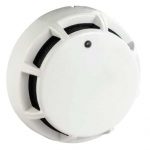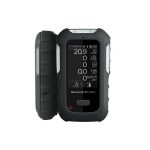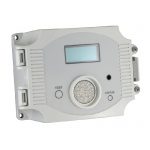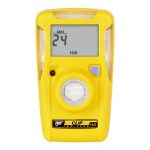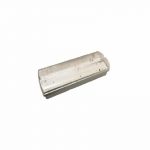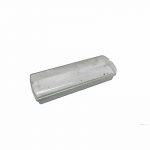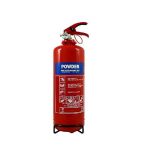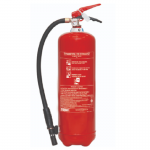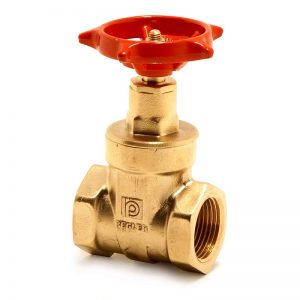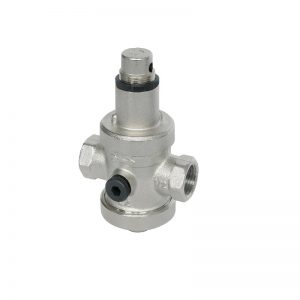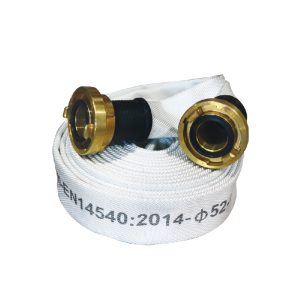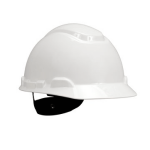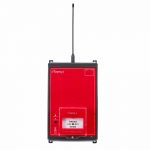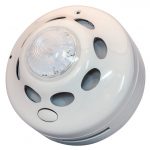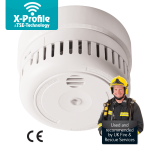Your list is empty, add products to the list to send a request
Breathe Easy: All You Need to Know About Wireless Gas Detection

22
Jul
Wireless gas detection systems are important for maintaining safety in various environments. They help detect dangerous gases and alert users before harm can occur. These systems are especially important in industrial settings, homes, and commercial spaces where gas leaks pose significant risks. However, leaks of these gases can pose a serious threat to safety. This is where wireless gas detection comes in – a revolutionary technology offering an extra layer of security for you and your loved ones.
How Wireless Gas Detection Works
Wireless gas detectors use sensors to identify the presence of gases. These sensors transmit data wirelessly to a central monitoring system. If a dangerous gas level is detected, the system triggers an alarm, alerting occupants to evacuate or take other necessary actions. This wireless technology eliminates the need for extensive wiring, making installation simpler and more cost-effective.
Here’s a breakdown of the key components:
- Wireless Sensors: These compact devices are placed strategically throughout a building or facility. They contain the actual gas detection technology and have built-in batteries for power.
- Central Hub: This central unit receives data from all the sensors and provides a central point for monitoring gas levels. It can be connected to an alarm system, control room, or even your smartphone for real-time notifications.
Benefits of Wireless Gas Detection Systems
There are several advantages to choosing wireless gas detection over traditional wired systems:
- Easy Installation: No need for complex wiring or drilling – mount the sensors and connect them to the central hub. This makes them ideal for existing buildings, hard-to-reach areas, or temporary setups.
- Cost-Effective: Saves on installation costs without needing extensive wiring infrastructure. Additionally, wireless systems often require fewer sensors due to their wider coverage area.
- Scalability: Easily add or remove sensors to adapt to changing requirements. Perfect for expanding facilities or adding coverage to specific areas.
- Flexibility: Sensors can be placed in any location with minimal disruption, allowing for better monitoring in hard-to-wire areas.
- Real-Time Monitoring: Receive instant alerts on your phone or control room whenever gas levels exceed safe limits, enabling quicker response times.
- Improved Safety: Wireless systems provide continuous monitoring, even during power outages, thanks to their battery-powered sensors.
Applications of Wireless Gas Detection
Wireless gas detection systems are used in various settings, including:
- Industrial Facilities: To monitor for leaks of hazardous gases like methane or ammonia.
- Residential Areas: To detect gases such as carbon monoxide or natural gas leaks.
- Commercial Buildings: Ensuring the safety of occupants by detecting any harmful gas presence.
- Public Spaces: These detect gas leaks in places like malls or airports to protect large groups of people.
Wireless Gas Detection in Dubai
In Dubai, the need for reliable gas detection systems is critical due to the extensive use of gas in various industries. Wireless gas detection systems offer a practical solution for businesses and homes to ensure safety. They are highly valued for their efficiency and ease of use, especially in a bustling city like Dubai, where safety standards are high.
Best Wireless Gas Detection Systems in Dubai
When choosing the best wireless gas detection system in Dubai, consider the following:
- Sensor Accuracy: Ensure the system has high-quality sensors for accurate gas detection.
- Alarm System: Look for systems with reliable alarm mechanisms to alert users promptly.
- Connectivity: Choose systems with good wireless connectivity to ensure consistent communication with the monitoring center.
- Durability: Opt for detectors that can withstand Dubai’s environmental conditions.
Things to Consider When Choosing a Wireless Gas Detection System
Here are some factors to keep in mind when selecting a wireless gas detection system:
- Type of Gas Detection: Choose sensors that detect the specific gases you’re concerned about, like natural gas, propane, carbon monoxide, etc.
- Number of Sensors Needed: The number depends on the size and layout of your space and the required coverage area.
- Alarm Features: Consider systems with audible and visual alarms; some can even send alerts directly to your phone.
- Battery Life: Look for sensors with long battery life (typically several years) to minimize maintenance.
- Wireless Range: Ensure the chosen system has sufficient range to cover the entire area effectively.
- Compliance: Choose systems that comply with relevant safety regulations for commercial or industrial applications.
Buying Wireless Gas Detection in Dubai
If you are looking to buy a wireless gas detection system in Dubai, here are some tips:
- Research: Look for reviews and ratings of different systems to find the most reliable options.
- Consult Experts: Talk to professionals in the field to get recommendations based on your needs.
- Compare Prices: Check the prices of various systems to ensure you get the best value for your money.
- Warranty and Support: Choose systems with good warranty and after-sales support to ensure long-term reliability.
Wireless Gas Detection Price in Dubai
The price of wireless gas detection systems in Dubai varies based on several factors:
- Brand: Premium brands may cost more but offer higher reliability and better features.
- Features: Systems with advanced features like real-time monitoring, multiple gas detection, and remote alerts can be more expensive.
- Installation: The complexity of installation can also affect the overall cost.
Typically, you can expect to pay anywhere from AED 500 to AED 3000 for a quality wireless gas detection system in Dubai, depending on the features and brand.
Maintaining Your Wireless Gas Detection System
Proper maintenance is crucial to ensure your wireless gas detection system works effectively:
- Regular Testing: Test the system regularly to ensure sensors and alarms function correctly.
- Sensor Calibration: Periodically calibrate sensors to maintain their accuracy.
- Battery Checks: Ensure batteries are replaced to keep the system operational.
- Software Updates: Keep the system’s software updated to benefit from the latest enhancements and security features.
Conclusion:
Wireless gas detection systems are a vital safety component in residential and commercial environments. They offer numerous benefits, including easy installation, flexibility, and cost-effectiveness. In Dubai, these systems are especially valuable due to the city’s high safety standards and the extensive use of gas in various industries.
By choosing the best system, understanding the price factors, and maintaining your detectors properly, you can ensure a safe environment for yourself and others. Investing in a reliable wireless gas detection system is a proactive step towards preventing gas-related accidents and providing peace of mind.



